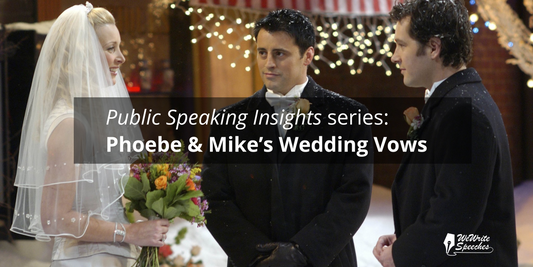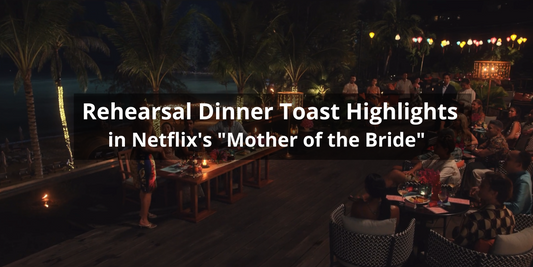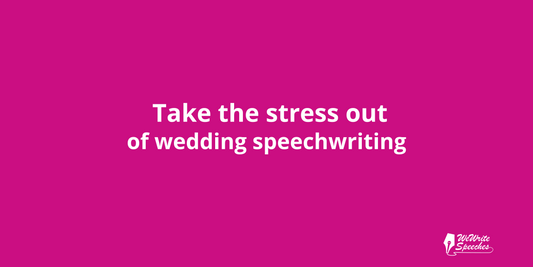Welcome back to our series, "Wedding Speeches: Lessons from the Limelight". In our last post, we compared wedding speeches to theater, and in doing so, gained some insights into content and preparation. Today, we revisit the theatrical world to learn what we can about how performers interact with each other.
A theatrical play will follow an overall script, for example, a three-act structure. Wedding speeches will usually also follow a prepared script or structure. However, there is a crucial difference. With wedding speeches, it is as if each ‘act’ is written by a different performer and not shared with the collective until the performance itself. This creates a unique challenge for these performers to build in callbacks to earlier speeches or foreshadowing to later ones.
Regarding preparations, actors will learn the lines by themselves and rehearse the scripted material together. On the other hand, wedding speakers will prepare and rehearse by themselves, sometimes practicing in front of family members (but almost never in front of the other speakers – especially not the best man in front of the groom).
The role of interactions between performers also differs. In theater, actors play off each other according to the script, so the interactions between performers are central to the story's progression. With wedding speakers, interactions are secondary, more indirect, and not strictly necessary. However, when they are present, they cement the speeches into an overall experience that makes the overall experience of the speeches more meaningful and enjoyable.
There are two types of interactions that speakers use to link their speeches to those of other speakers:
- Planned: where a speaker knows roughly what other speakers are going to say; or
- Improvised: where a speaker adds some content to their speech based on what they heard in a previous speech. We will cover this topic in more detail in part 4 of this series.
Planned interactions
The following types of interactions would be unlocked if the speaker knew who the other speakers would be and what topics they would cover. The groom could:
- call back to the father of the bride’s speech by thanking his new father-in-law for his words of wisdom (marital advice) and his generous welcome to the family.
- publicly fret about what exaggerated and untrue things the best man is going to say in his upcoming speech.
- propose a toast to the maid of honor and the other bridesmaids.
Similarly, before a best man could plan to thank anyone for a toast to the bridesmaids, he would need to know:
- if a toast would be given to the bridesmaids
- would it be given by the bride or groom
- would the maid of honor be speaking for herself (in which case, it would be more appropriate for her to respond to whoever gave the toast)?
All of these interactions become possible when the speakers know who else is speaking and what topics those other speakers will cover.
| Pro tip: each speaker should be briefed on what topics they should cover and what topics other speakers will cover. This requires planning by someone with an overall view of proceedings (typically the couple or a wedding planner). Doing so allows speakers to build in basic callbacks to earlier speeches or foreshadow what is to come in later speeches. |
Conclusion
Wedding speakers are at a significant disadvantage compared to playwrights when trying to build in callbacks and other interactions with performers. They must write the content themselves and don’t get to see what the other speakers have written, yet somehow, they have to refer to the other speakers' words.
The content-creation process of speeches needs to work differently from theater. In theater, a playwright writes the full play with all character interactions and stage directions for their work. Wedding speeches, on the other hand, need to be created with a two-step process where an outline is created up front and provided to the speakers who will each flesh out their own speeches. As a minimum, speakers should be informed of who else is speaking and whether or not they are expected to give a particular toast or respond to a toast given in their honor.
In our next post in this series, we'll explore how improv techniques might be applicable to wedding speeches.




